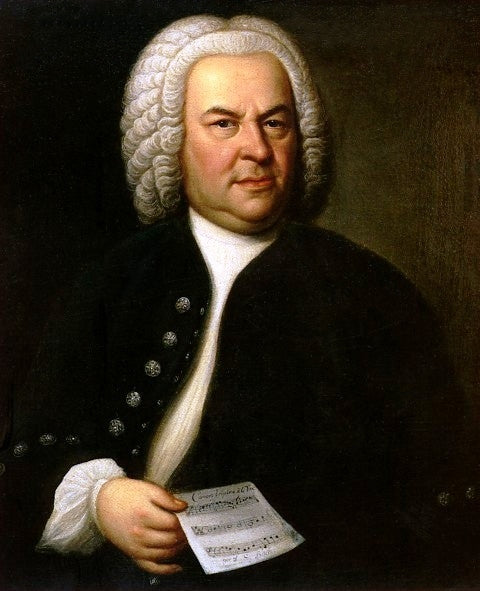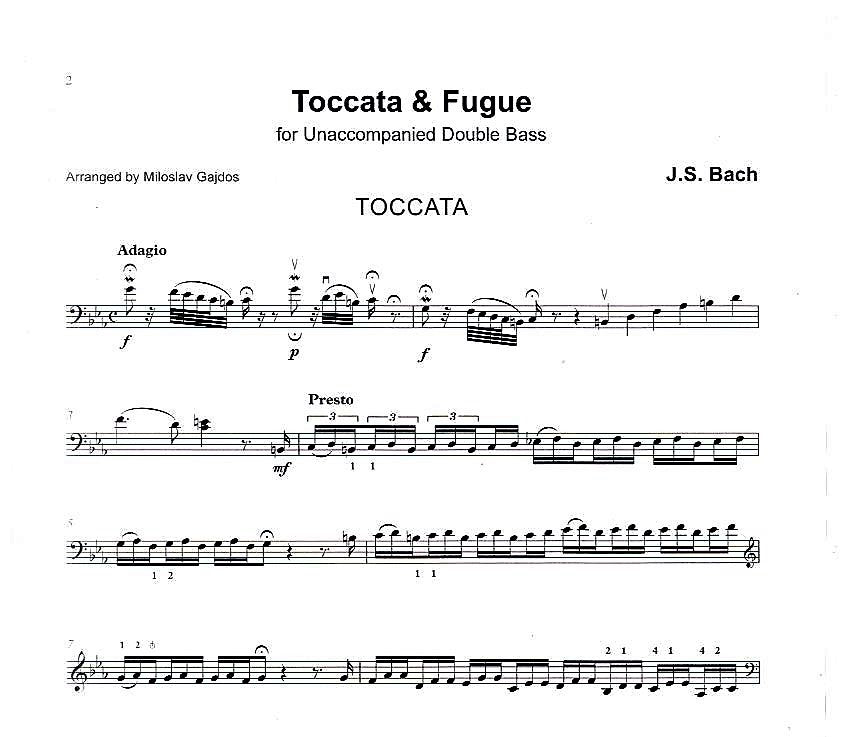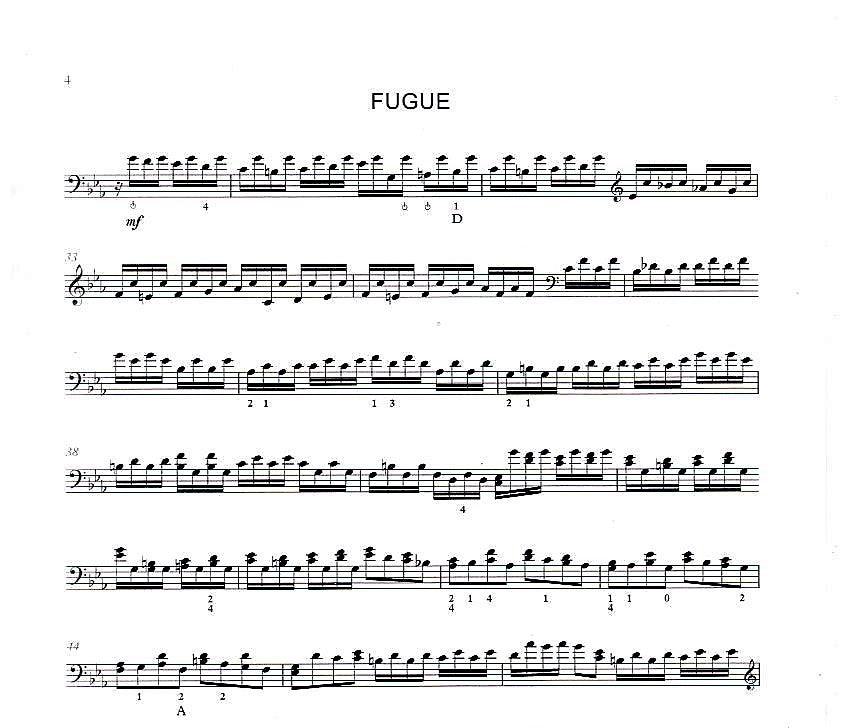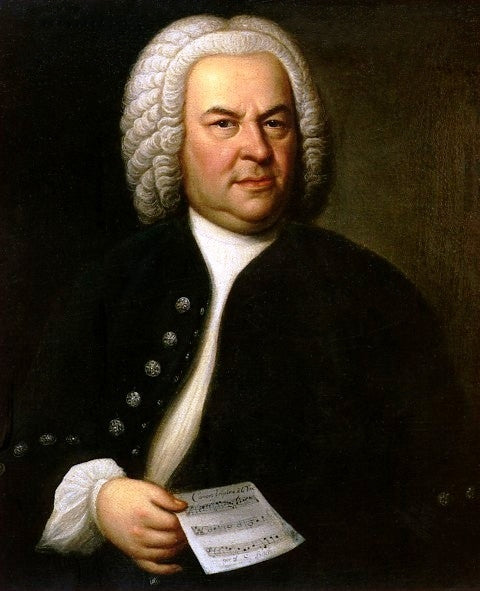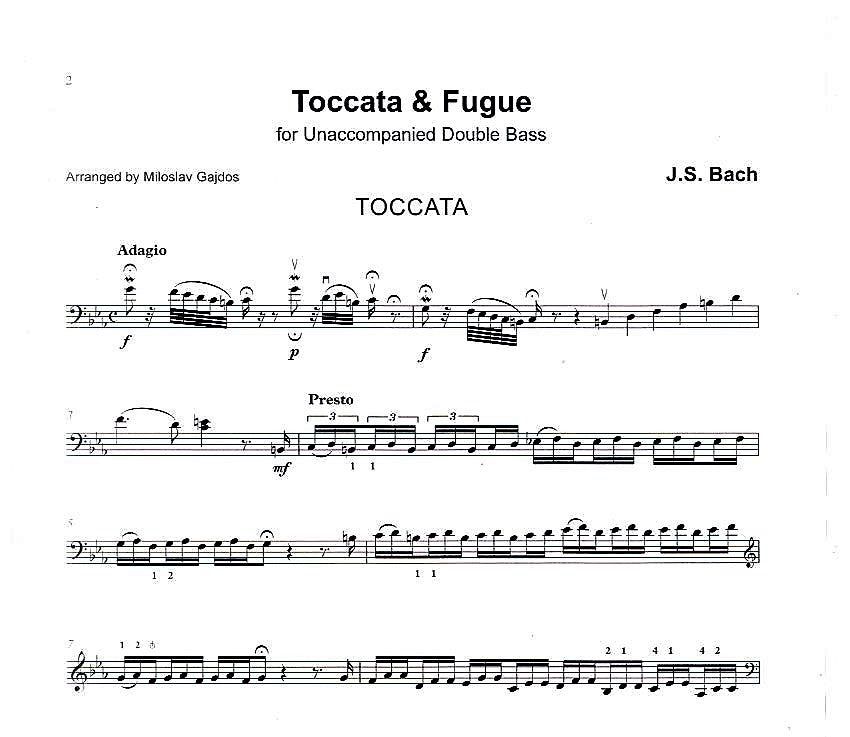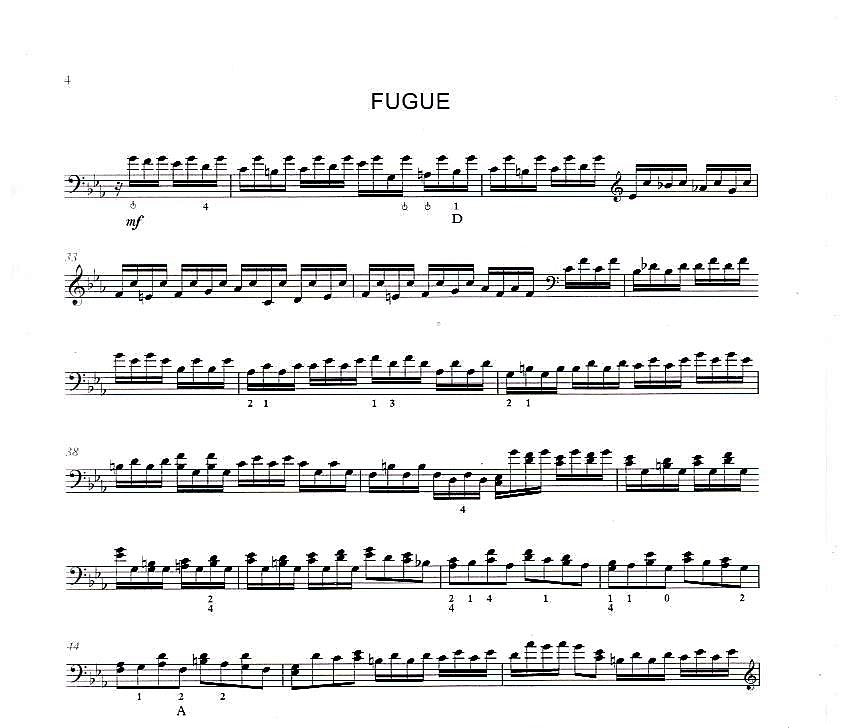David Heyes
J.S. Bach: Toccata & Fugue in D minor, BWV 565 for unaccompanied double bass (arr. Miloslav Gajdoš)
J.S. Bach: Toccata & Fugue in D minor, BWV 565 for unaccompanied double bass (arr. Miloslav Gajdoš)
Couldn't load pickup availability
About the Composition and Arrangement
Bach’s Toccata & Fugue in D minor is a cornerstone of the organ repertoire and is one of the most recognizable works to classical music lovers around the world. It is uncertain when it was written and was first published in 1833, based on a manuscript copy made by the German composer and organist Johannes Ringk.
The magnificent arrangement for unaccompanied double bass by Miloslav Gajdoš offers musical and technical challenges throughout and is monumental and outstanding to the transcription repertoire. It sounds in C minor when played in orchestral tuning and in D minor, its original key, when played in solo tuning.
Program Notes
“From the time I seriously started studying the double bass, I realised there was no solo piece for the instrument by J. S. Bach. The double bass orchestral parts in his 3rd Brandenburg Concerto or in the Violin Concerto in E major and Double Concerto in D minor for two violins are not enough, even though they are beautiful."
Sometime in 1966, whilst studying at the conservatoire, I was enthralled by hearing the Menuets from the third Cello Suite, and together with the Sarabande and Gigue, I decided to rework them for double bass. I chose to use tenor clef instead of bass to achieve the sound, which would not be too high nor too low. This proved to work even in other cello suites which I later used as study material for my students.
At the beginning of 1990s, I concentrated on three violin partitas, and strangely they are more suitable for double bass than the cello suites. I also used tenor clef, instead of treble clef, because the key of the solo double bass remains the same as violin.
It was a monumental task to work on the Chaconne, which was also perfect for playing on double bass. This piece only needed a few minimal changes, and I performed it in Berlin 1988 with great success.
Frederick Charlton posted a video performing Bach's Toccata and Fugue in 2010 in which he preserved the original D minor key for orchestra tuning. After seeing this video, I decided to rewrite this piece for unaccompanied double bass, where the originally dominant note of A would be played on the highest open string.
The premiere of my transcription was in Brno (Czech Republic) in 2011, with very positive feedback. Because the Toccata & Fugue is originally written for organ, it gives the double bass the opportunity to use and show beautiful tone in middle, higher, and lower pedal positions. Thanks to very interesting melodic and harmonic sequences, we can say the double bass interpretation has been enriched by, so far unknown, resources which build an extraordinary place for new repertoire.”
About the Arranger
[Programme note by Miloslav Gajdoš / Kroměříž 15 January 2023]
Miloslav Gajdoš is one of Europe's most active and inventive bassist-composers. He was born in northern Moravia in 1948 and initially learned violin before transferring to the double bass, studying with Alois Kříž, Jirí Bortlícek and Ludwig Streicher.
He has been Professor of Double Bass at the Vejvanovský Conservatoire in Kroměříž (Czech Republic) since 1971, and was a member of the Olomouc Symphony Orchestra for a number of years. He is Director of the Gregora International Double Bass Competition, founded in 1979 and held every two years in Kroměříž, and has been a juror at many competitions in Hungary, Germany and the Czech Republic.
Miloslav Gajdoš is a prolific composer and arranger and, for almost 40 years, has produced a vast body of original works and transcriptions for double bass which are performed worldwide. His original works combine Czech lyricism and melody with brilliant technical demands, and music from one to sixteen double basses. He writes in a traditional and accessible style, producing music for every level of performer, particularly for the advanced bassist, and his many works for unaccompanied double bass are frequently chosen as international competition repertoire.
[Gajdoš is pronounced GUY-DOSH]
